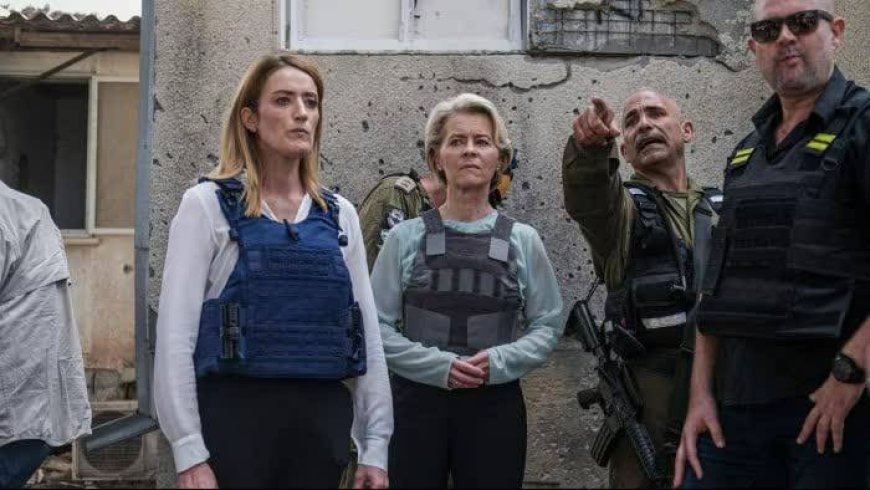Europe's Middle East Masquerade: A Cloak of Diplomacy or Deception?

In the past few days, the Middle East has become a focal point for developments that underscore the precarious situation, which might ultimately lead to a full-fledged military confrontation. Security experts widely acknowledge the deteriorating conditions in the already volatile region, prompting concerns about the need for regional and extra-regional powers to engage in strategic consultations and diplomatic efforts to avert further escalation.
The recent Iranian military operation "True Promise, targeting the Israeli regime's military bases, has triggered a flurry of responses from countries outside the region. Notably, the European Union has dubiously positioned itself as a mediator, aiming to mitigate tensions and uphold a façade of peace through dialogues with regional powers. However, beneath this diplomatic veneer lies a more nuanced power play.
In navigating the geopolitical complexities of the Middle East, a distinct division of labor has emerged in the western bloc. The United States assumes the role of the 'bad cop,' assuming the role of military deterrence for the Israeli regime, while Europe adopts seemingly a more conciliatory stance, seeking to balance the scales by advocating for diplomacy to pacify the region.
This European strategy is not devoid of political calculations, with several key dimensions warranting scrutiny. Firstly, against the backdrop of the looming US presidential elections scheduled for next November, the EU strategically aligns itself with the Democrat Party’s foreign policy approach, viewing another Democrat-led administration as more conducive to its interests than a far-right Republican administration similar to that of Trump’s tenure. Hence, the EU's tacit support for the Democratic nominee, the incumbent Biden, is a calculated move to secure favorable outcomes post-election.
Secondly, the European Union places significant emphasis on public opinion within its member states, particularly in light of recent events such as the Israeli aggression against 2.5 million Palestinian civilians in Gaza and their unabated humanitarian plight. Heightened public sentiments against Israeli war crimes have spurred widespread protests across European nations, prompting governments to navigate the delicate balance of managing domestic expectations while engaging with international affairs.
Moreover, the EU's purported stance on the conflict-stricken Middle East is underpinned by a commitment to averting humanitarian crises and safeguarding innocent lives. The region's volatile landscape demands an unpretentious approach to preclude further Israeli bloodshed in the Gaza Strip and uphold the principles of peace and stability, reflecting the EU's broader aspirations to assert its influence on the global stage.
Furthermore, following the military clash between Ukraine and Russia, which badly tarnished the EU's image as a proponent of peace, European governments seek to redefine their role in international relations. By adopting a stance of moderation, albeit not completely sincere, in the Middle East, Brussels aims to rehabilitate its standing and project a narrative of peacemaking in the face of rising tensions.
In conclusion, the intricate web of alliances and power dynamics shaping the Middle East's geopolitics underscores the need for genuine diplomacy and constructive maneuvering. Europe's evolving role in the region, marked by a delicate balancing act between competing interests, underscores the complexities at play and the imperative of crafting honest measures to pass through the treacherous waters of Middle Eastern conflicts and beyond.













































